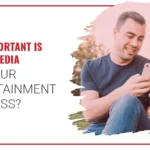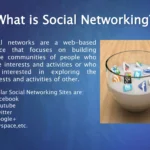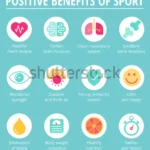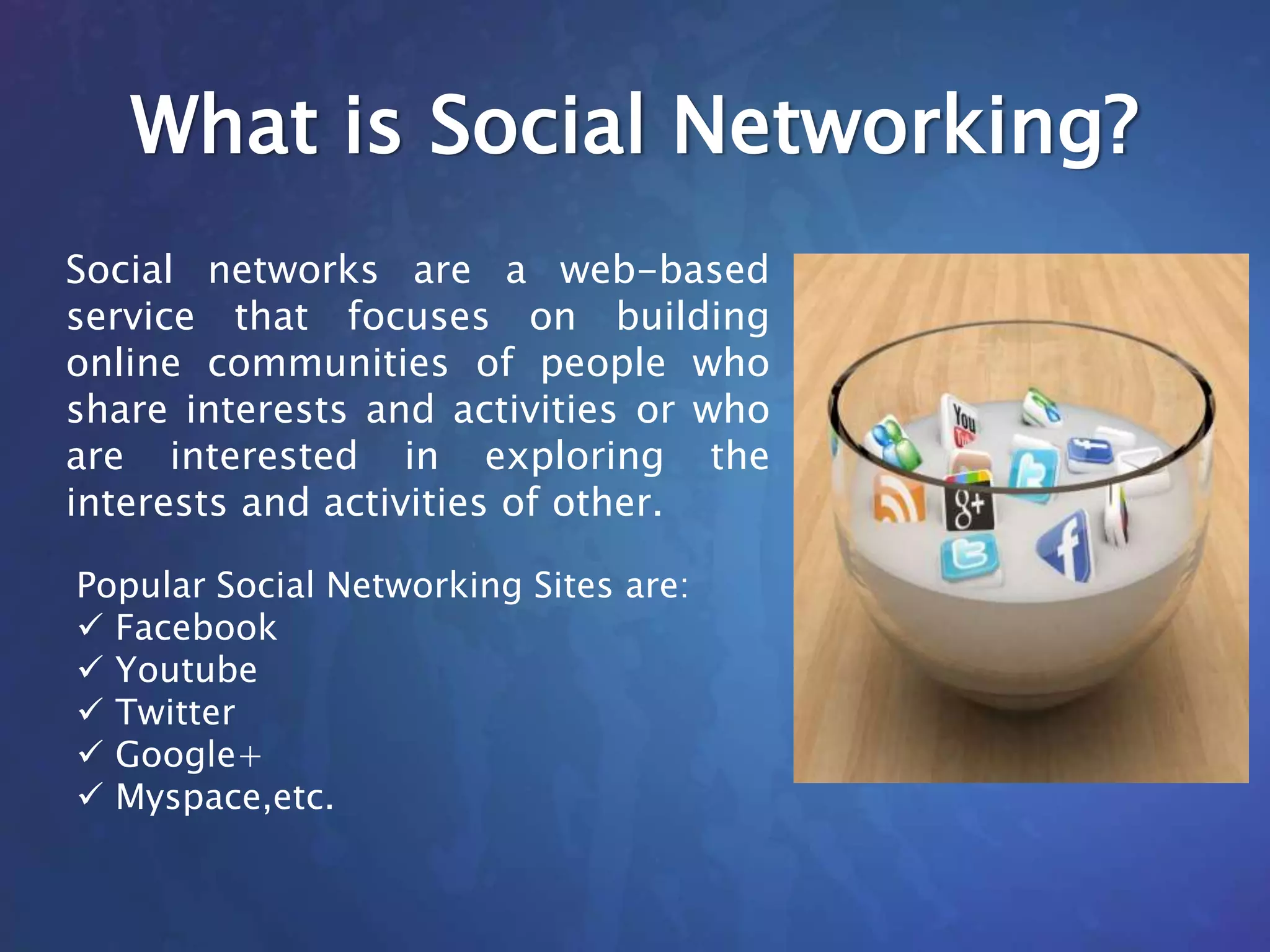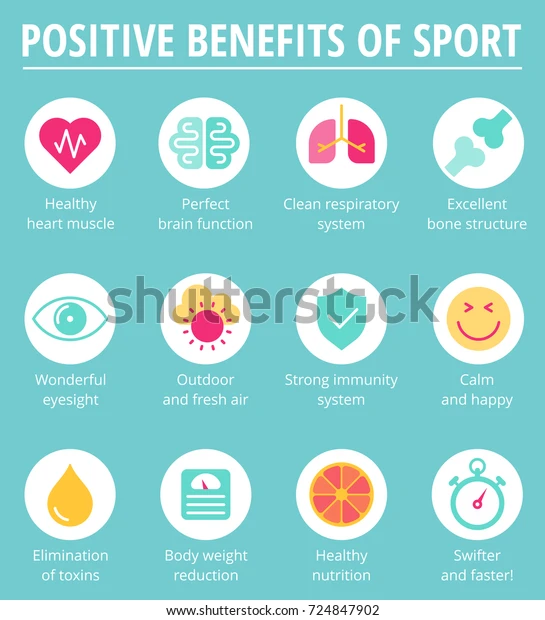The Benefits of Social Networking and Taking Comments in Cinema, Entertainment, and Games
Introduction
In the digital age, social networking has become a powerful tool influencing various sectors of life, including cinema, entertainment, and gaming. The interactive nature of platforms like Twitter (X), Instagram, Reddit, YouTube, Discord, and TikTok has changed the traditional one-way communication between creators and audiences into a two-way dynamic. One of the most notable changes is the rise of real-time feedback through comments, reviews, and community discussions. This essay explores the benefits of social networking and taking audience comments in cinema, entertainment, and gaming. It will highlight how these tools enhance audience engagement, improve content quality, foster fan communities, and even shape future creative directions.
1. Enhanced Audience Engagement
a. Real-Time Interaction
One of the primary benefits of social networking is the ability for creators and production companies to engage directly with their audiences in real-time. On platforms like Twitter or Instagram, directors, actors, game developers, and other creators can share teasers, behind-the-scenes content, or personal messages. Audiences respond instantly, offering praise, criticism, or suggestions. This interactivity was nearly impossible in the pre-social media era.
b. Building Anticipation and Hype
Studios and creators now use social media to build hype for upcoming releases through sneak peeks, countdowns, and influencer partnerships. For example, Marvel Studios uses Twitter and YouTube trailers to create massive online buzz, with fans flooding the comment sections with theories, excitement, and feedback. In gaming, developers drop gameplay trailers or beta test invites to generate excitement, and users’ responses directly shape future marketing strategies.
2. Better Understanding of Audience Preferences
a. Data-Driven Insights
Social networking platforms generate vast amounts of user data that can be analyzed to understand what audiences like or dislike. Studios and game developers monitor comments, likes, shares, and hashtags to track fan sentiment. These insights help tailor content more closely to audience preferences. For instance, Netflix uses viewing data and user feedback to inform future content investments.
b. Responsive Development
In the gaming industry, feedback loops are even tighter. Developers monitor platforms like Reddit, Discord, and Steam forums to track bugs, feature requests, and gameplay issues. By responding to user comments, companies can patch issues quickly, add requested features, or even redesign elements of the game. A well-known example is the game No Man’s Sky, which launched to negative feedback. The developers responded by incorporating community comments into major updates that significantly improved the game’s reputation.
3. Crowdsourced Quality Control
a. Community Reviews and Feedback
Social media platforms have empowered users to act as critics. Websites like Rotten Tomatoes, IMDb, and Metacritic now include user reviews alongside critics’ scores. These public forums allow real-time commentary, influencing public perception and guiding viewers’ or players’ choices. For creators, this feedback can highlight strengths and weaknesses they may not have considered.
b. Spotting Trends and Patterns
Audiences often notice trends or problems before critics or creators do. For instance, a film may be praised by professional critics but receive backlash from general audiences over a problematic plotline or poor representation. Similarly, a game might pass initial reviews but receive negative feedback over time due to microtransactions or balance issues. Social media comments act as an early warning system, prompting studios to act swiftly.
4. Fostering Strong Fan Communities
a. Building Fan Loyalty
Social networking fosters the formation of fan communities that are loyal, passionate, and often self-sustaining. Fans create memes, fan art, theories, and other user-generated content that keeps the brand or franchise alive between releases. These communities, such as those around Star Wars, Stranger Things, or The Legend of Zelda, become part of the broader entertainment experience.
b. Word-of-Mouth Marketing
Fan communities on platforms like Reddit or YouTube often act as organic marketing machines. A single viral tweet, TikTok, or review can catapult a lesser-known movie or indie game into popularity. For instance, games like Among Us and Undertale became breakout successes largely due to social media buzz and fan-made content. Studios benefit from this unpaid marketing driven by user enthusiasm.
5. Influence on Creative Direction and Storytelling
a. Incorporating Fan Feedback
In some cases, social networking and comments have influenced creative decisions in movies, shows, and games. For example, when the first trailer for Sonic the Hedgehog (2020) was released, the character design received overwhelmingly negative feedback online. The studio took the feedback seriously and redesigned Sonic before the movie’s release, which was later praised by fans and helped the movie succeed at the box office.
b. Shaping Sequels and Expansions
Feedback collected via social media can also shape future projects. Developers and writers often monitor fan theories and preferences when creating sequels. Fan-favorite characters may return based on positive reception, or certain plotlines may be expanded due to fan interest. Netflix’s Stranger Things and BioWare’s Mass Effect series are examples where fan engagement influenced ongoing narratives.
6. Increased Transparency and Accountability
a. Public Communication Channels
Creators and companies are now expected to communicate transparently with their audiences. When controversies or delays arise, official Twitter or Instagram pages are often used to issue statements, updates, or apologies. This direct communication helps retain trust and manage public relations more effectively than traditional press releases.
b. Holding Studios Accountable
Audiences use social networking to demand ethical behavior from creators and corporations. For example, movements like #ReleaseTheSnyderCut or backlash against unfair workplace practices at game studios have gained momentum through social media. These platforms give power to consumers to hold companies accountable for issues like representation, fair treatment of workers, and honest marketing.
7. Support for Indie Creators and Innovation
a. Leveling the Playing Field
Social networking gives indie creators in film, entertainment, and gaming a chance to reach global audiences without the backing of large studios. A short film uploaded to YouTube, or an indie game promoted through TikTok, can go viral and attract funding or publishing deals. Platforms like Kickstarter also thrive on social sharing and comments to gain support for creative projects.
b. Niche Audiences and Diversity
Social networks allow creators to find and serve niche audiences that may be underrepresented in mainstream media. These platforms celebrate diversity in voices, cultures, and genres. For example, queer, disabled, and BIPOC creators often use social media to share authentic stories and receive feedback from supportive communities. This feedback helps improve inclusivity in content across the entertainment landscape.
8. Education and Skill Building
a. Tutorials and Developer Diaries
Creators in gaming and cinema often share behind-the-scenes tutorials, developer logs, or commentary tracks on YouTube, Twitter, or Twitch. These insights help aspiring filmmakers, animators, or game designers learn industry-standard techniques. Comments and discussion threads allow for questions, peer-to-peer advice, and community learning.
b. Open Dialogue with Experts
Social networking allows fans and learners to interact with industry professionals directly. Q&A sessions, live streams, and Twitter threads offer invaluable access to expert knowledge. Comment sections often become collaborative spaces where both professionals and amateurs share ideas and critiques.
9. Mental Health, Empathy, and Social Awareness
a. Storytelling with Impact
Comments and reactions on social media show that audiences often resonate with stories that reflect real-world struggles—mental health, identity, trauma, etc. Films and games that tackle these themes benefit from the feedback and discussions that arise online. This ongoing conversation helps creators be more responsible and empathetic in their storytelling.
b. Safe Spaces and Emotional Support
Fan groups, especially around certain genres or franchises, become emotional support communities. Gamers and viewers use these spaces to discuss how certain content helped them through difficult times. Creators who engage with such feedback often feel motivated to continue making meaningful, impactful content.
10. Economic and Strategic Benefits
a. Monetization through Engagement
Social media engagement directly impacts monetization. YouTube content creators in gaming and entertainment monetize views, likes, and comments. Films and games promoted via influencers or streamers also benefit from high social interaction. Games like Fortnite maintain relevance largely through social media presence and content creator partnerships.
b. Market Forecasting and Risk Reduction
Studios use social media metrics to forecast the potential success of releases. Positive comment trends can indicate high demand, while backlash may signal trouble. This predictive capacity allows companies to shift marketing strategies, delay launches, or alter content, reducing financial risk.
Conclusion
Social networking and user comments have revolutionized the cinema, entertainment, and gaming industries. They empower audiences, democratize creative input, and provide creators with real-time feedback, marketing tools, and insights into audience sentiment. When used responsibly, these tools not only enhance the quality of entertainment but also foster a more inclusive, responsive, and engaging creative landscape. While challenges like toxicity or misinformation persist, the overall impact of social networking and user feedback remains overwhelmingly positive for creators, audiences, and the industries that connect them.
Here’s a 1000-word version of the same topic:
The Benefits of Social Networking and Taking Comments in Cinema, Entertainment, and Games
Introduction
In the modern digital world, social networking has significantly transformed how cinema, entertainment, and games are created, consumed, and discussed. Platforms like Twitter (X), YouTube, Reddit, Instagram, TikTok, and Discord allow fans to share opinions instantly and creators to receive real-time feedback. This two-way communication creates new opportunities for content improvement, fan engagement, and community growth. This essay explores the key benefits of social networking and user comments in the entertainment industry, focusing on how they influence audience engagement, content quality, marketing, community building, and creative direction.
1. Increased Audience Engagement
Social networking allows creators to connect directly with their audience. Directors, actors, game developers, and studios use platforms like Instagram, Twitter, and YouTube to share updates, trailers, and behind-the-scenes content. In return, audiences reply with comments, fan theories, memes, or reviews.
This ongoing interaction builds anticipation and keeps fans engaged long before a release. For example, Marvel Studios regularly uses teaser trailers and countdown posts to create buzz, while gaming companies often use social media to drop updates or demo news, sparking massive online discussion. Fans feel included in the journey, not just the final product.
2. Better Feedback and Content Improvement
Comments and reviews from fans help creators understand what works and what doesn’t. Unlike traditional media, where feedback is delayed or filtered through critics, social media comments offer instant, unfiltered audience opinions.
In the gaming industry, this is especially valuable. Developers often monitor Reddit, Steam reviews, and Discord chats to identify bugs, complaints, or feature requests. For example, the game No Man’s Sky initially faced criticism, but after developers paid attention to player feedback, major updates improved gameplay and repaired its reputation.
Similarly, in cinema, negative responses to a trailer or character design can push creators to make changes before the full release. A famous case is the redesign of Sonic in the 2020 Sonic the Hedgehog movie after fans reacted badly to the original trailer.
3. Community Building and Fan Loyalty
Social networking allows fans to build communities around their favorite movies, shows, or games. These online groups—whether on Reddit, TikTok, or Facebook—keep the excitement alive between releases through discussions, fan art, memes, cosplay, and theories.
Such fan-driven engagement increases brand loyalty. For example, shows like Stranger Things or games like Minecraft maintain popularity through active fanbases that constantly create and share content. These communities also help new fans discover content through word-of-mouth and viral posts.
4. Cost-Effective Marketing and Virality
Social media is a powerful, low-cost marketing tool. Instead of relying only on expensive TV ads or billboards, studios can create hype by sharing trailers, clips, and posters online. Influencers, YouTubers, and streamers also help promote content to massive audiences.
In gaming, many indie titles like Among Us and Undertale became successful almost entirely due to social media buzz and streamer attention. Comments, shares, and likes help spread content organically. A single viral post or video can introduce a game or film to millions of new people.
5. Creative Influence and Fan Participation
One of the most unique effects of social networking is how fans now influence the creative direction of content. When creators listen to fan comments, they can shape characters, plotlines, or game features to better match what the audience wants.
For example, in TV series, fan-favorite characters might get more screen time in later seasons due to social media support. In games, developers might introduce new modes or cosmetics based on popular fan suggestions. This kind of feedback loop makes fans feel valued and involved in the creative process.
6. Transparency and Accountability
Social media creates a direct line between creators and consumers, encouraging greater transparency. If a film is delayed or a game has bugs, developers can explain the reasons through official statements on social platforms. This builds trust and keeps fans informed.
At the same time, audiences can hold creators and companies accountable. Social media gives a voice to underrepresented groups and helps raise awareness of issues like poor working conditions, unfair representation, or misleading marketing. Movements like #ReleaseTheSnyderCut or criticism of exploitative in-game purchases have all gained momentum through public comments online.
7. Support for Indie Creators and Niche Content
Before social media, it was difficult for small creators to compete with big studios. Now, independent filmmakers, musicians, and game developers can promote their work directly to a global audience using social networks. Platforms like Kickstarter or itch.io rely heavily on social media promotion and fan support in the comment sections.
Creators can find niche audiences that mainstream industries often ignore. Whether it’s a game about mental health or a movie focusing on LGBTQ+ characters, social media helps such projects find fans who appreciate their message. Comments from these fans encourage creators to keep going and improve their content.
8. Learning and Collaboration
Social platforms also serve as learning environments. Developers and filmmakers often share tutorials, live Q&As, and behind-the-scenes content on YouTube or Twitter. Comment sections allow learners to ask questions, give advice, and share experiences.
Fans can also collaborate with creators. For example, open beta testing in gaming lets players try early versions and share feedback. Some filmmakers and writers even ask for fan input through polls and discussions, making the final content more collaborative and community-driven.
9. Emotional Impact and Representation
Audience comments can highlight how a game or film has impacted them personally. This feedback reminds creators that their work can have deep emotional meaning. For example, viewers might comment on how a movie helped them through depression, or how a character gave them confidence in their identity.
This type of comment-driven feedback promotes more thoughtful, inclusive storytelling. Creators become more aware of how their content affects different groups and adjust their approach accordingly. Representation improves, and storytelling becomes more empathetic.
10. Business Growth and Risk Management
Finally, comments and social interactions help companies understand market trends and reduce risks. If fans are unhappy about a change in direction or dislike a trailer, companies can adjust before the product fails completely. At the same time, positive engagement can signal a strong release, allowing more investment and promotion.
Game publishers often use social media statistics—likes, comments, retweets—to measure potential success. This kind of market feedback saves time, money, and reputation by catching problems early and guiding future decisions.
Conclusion
Social networking and user comments have become essential to the success of cinema, entertainment, and gaming. They allow for direct communication, deeper fan engagement, content improvement, and creative collaboration. Whether it’s through reviews, tweets, or forum discussions, user feedback plays a crucial role in shaping the modern entertainment landscape. While challenges such as online toxicity exist, the overall benefits—from better marketing and accountability to improved content quality and fan satisfaction—show why listening to audiences is more valuable than ever.
